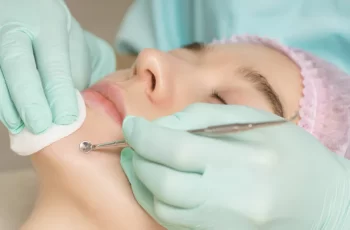
Why Does My Skin Look So Dull?
Having dull skin can be incredibly frustrating, especially if you believe you take good care of your complexion.
It’s one of those issues that can leave you feeling a bit down because your skin simply isn’t reflecting the health and vitality you expect.
Some days, no matter what you do, your skin just refuses to cooperate. If you have ever glanced in the mirror and noticed your skin looking lacklustre, greyish, or just generally dull, you are not alone.
This is a very common problem, and it can happen for many reasons. The good news is, with some understanding and simple adjustments, you can regain that radiant glow you deserve.
Below are five major reasons why your skin might be looking dull and practical tips on how to prevent it from happening again.
Stress and Its Impact on Your Skin
Life can get overwhelming.
Whether it’s work piling up, arguments with loved ones, or simply burning the candle at both ends, stress has a powerful effect on your appearance. When you feel stressed, your skin can suffer too.
Chronic stress causes hormonal imbalances that trigger oil production, inflammation, and even premature ageing.
If you notice your skin is looking tired and dull, it could be your body telling you it needs some care and attention.
One easy trick to revive your skin after a stressful period is to use a cream-based cleanser and massage it into your face.
Apply firm pressure and move your fingers in circular motions all over your skin.
This gentle massage stimulates blood flow and encourages oxygen to reach the surface, making your skin appear plumper and more vibrant.
If massaging with your hands doesn’t appeal to you, try using a microfibre cloth or a soft flannel when cleansing.
These tools provide a gentle exfoliation that removes dirt and dead skin cells more effectively than your fingers alone, without irritating the skin.
Since stress affects your skin’s appearance, booking a professional facial can be a wonderful way to give yourself a boost.
Facials offer deep cleansing, hydration, and relaxation, which all help restore your natural glow. Taking time out for self-care can dramatically improve both your mood and your complexion.
The Accumulation of Dead Skin Cells
Imagine a beautiful wooden table covered in a thick layer of dust. You can’t appreciate the smooth surface beneath because the dirt dulls its natural shine.
The same thing happens to your skin when dead cells build up on the surface.
Our skin naturally sheds dead cells, but sometimes they accumulate faster than they can be removed, leaving a layer that blocks your skin’s luminosity.
The result? Your skin looks dull, dry, and sometimes ashy or greyish. To combat this, regular exfoliation is essential.
Using a gentle scrub one to two times per week helps slough away dead cells and reveals fresh, glowing skin underneath.
For instance, a product like Procoal’s exfoliating face scrub works well on all skin types.
You can adjust its intensity by adding more water before application, making it softer and easier to use on sensitive skin.
If you prefer not to use a physical scrub, chemical exfoliants are a great alternative.
Products containing alpha hydroxy acids (AHAs) or beta hydroxy acids (BHAs) can dissolve dead skin cells without any scrubbing.
Simply apply the liquid exfoliant to a cotton pad and gently swipe it across your face, avoiding the delicate eye area. You might notice a grey residue on the cotton pad, which is the dead skin coming off.
These acids promote cell turnover and brighten your skin effectively.
Pollution and Environmental Damage
Living in a busy city or spending a lot of time outdoors exposes your skin to pollution daily.
While staying indoors all the time isn’t practical or healthy, pollution is a significant culprit behind dull, tired-looking skin.
Pollutants cause inflammation and disrupt your skin’s natural moisture barrier, leading to dryness and irritation.
Moreover, pollution generates free radicals—unstable molecules that damage collagen and elastin, the proteins that keep your skin firm and youthful.
This damage accelerates ageing, causing wrinkles and sagging skin. It’s important to protect your skin from these harmful effects to maintain its glow and health.
At night, always remove all your makeup and cleanse your face thoroughly.
Double cleansing is highly recommended, using an oil-based cleanser first to break down makeup and sunscreen, followed by a water-based cleanser to remove any remaining impurities.
To ensure a deep clean, try using a face brush or a muslin cloth, which can be more effective than your hands alone.
In the morning, load your skin with antioxidants. Many moisturizers and serums contain vitamin C, a powerful antioxidant that neutralizes free radicals and helps brighten the skin.
Vitamin C also evens out skin tone, making your complexion appear more radiant throughout the day.
Dehydration: The Hidden Cause of Dullness
No matter your skin type—whether oily, dry, or combination—your skin can become dehydrated.
Dehydration is a lack of water in the skin’s layers, which results in a dull, lifeless appearance and can accentuate fine lines and wrinkles.
Drinking water is essential for overall health, but it sometimes isn’t enough to restore moisture to your skin.
One of the best ingredients to combat dehydration is hyaluronic acid. This powerhouse molecule holds up to 1,000 times its weight in water, providing intense hydration when applied topically.
Hyaluronic acid serums are lightweight and absorb quickly, making them perfect for morning use to give your skin a plump, dewy finish.
Besides serums, never skip moisturizing your skin. Even oily skin benefits from a good moisturizer, especially those rich in emollients, which create a protective film to lock hydration in.
When your skin feels soft and hydrated, it instantly looks healthier and more radiant.
Sun Overexposure and Its Toll on Skin
We all know too much sun exposure is bad for our skin, yet many people still don’t protect themselves adequately.
The harmful ultraviolet (UV) rays from the sun cause uneven pigmentation, dullness, and long-term damage such as wrinkles and age spots.
Overexposure leads to hyperpigmentation—dark patches or spots that make your skin tone look uneven and dull. It also breaks down collagen, causing premature ageing.
The simplest and most effective way to prevent sun damage is to wear sunscreen every day, regardless of whether you plan to be outdoors for long or just stepping outside briefly.
Sunscreens protect against UVA and UVB rays, preventing burns and long-term harm. Reapply often if you are outside for extended periods.
Retinol, a vitamin A derivative, can help improve skin texture and fade dark spots over time.
Use retinol products at night because they can make your skin more sensitive to sunlight and lose effectiveness when exposed to UV rays.
Pairing retinol with vitamin C in the morning creates a powerful combination that fights pigmentation and boosts radiance.
Additional Factors to Consider
While stress, dead skin buildup, pollution, dehydration, and sun damage are some of the primary reasons for dull skin, other factors may also contribute.
Hormonal imbalances, poor diet, and underlying health conditions can affect your skin’s appearance.
Smoking, lack of exercise, and insufficient sleep are other lifestyle habits that dull your complexion.
Making sure you eat a balanced diet rich in antioxidants, vitamins, and minerals supports skin health from within.
Foods like berries, nuts, leafy greens, and fatty fish provide nutrients that help repair skin and reduce inflammation.
Getting enough rest is equally important. Your skin repairs itself while you sleep, so a consistent sleep schedule helps maintain a youthful glow.
Finally, staying hydrated by drinking plenty of water and avoiding excessive alcohol or caffeine intake can help keep your skin glowing.
In Conclusion
If your skin has been looking dull and lifeless, understanding the root causes is the first step toward restoring its natural radiance.
By managing stress, exfoliating regularly, protecting against pollution, hydrating properly, and guarding against sun damage, you will see your skin transform.
Taking these simple steps can make a big difference in your complexion.
Remember, your skin reflects your overall health and lifestyle, so taking care of your body and mind will also nourish your skin.
Soon enough, your reflection will be glowing with health, confidence, and vitality.


